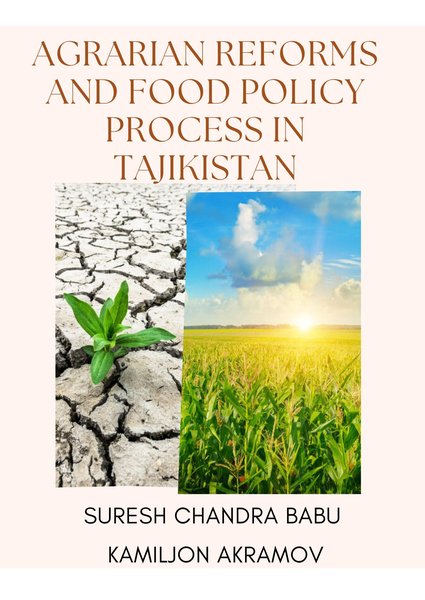




Year: 2022
Collections: Scientific Publications
Topics: Agriculture
Authors: Babu Suresh Chandra, Akramov Kamiljon
Countries: Tajikistan
Source:
Downloads:
This paper documents the food and agricultural policy process in the context of agrarian reforms in Tajikistan. It uses the case study of Tajikistan and applies a recently developed conceptual framework for understanding the drivers of policy change. It undertakes a historical review of agrarian reforms and appraises current policy challenges within the food and agricultural sector. Using specific tools to study power relations, financing, and information flows in the policy process, it maps institutional architecture and key stakeholders in the pre- and post-soviet era. Information gathered through focused group discussions, key informant interviews, and recent field research on food and agricultural policy issues is used to analyze factors that drive different stages of the policy making process. We find that understanding the political economy and policy process interface in Tajikistan is key for designing and implementing successful policy interventions. While progress has been made, agrarian reforms towards improving land tenure rights, strengthening WUAs, providing crop insurance against drought, are the necessary steps in a larger policy discussion. Ensuring the effectiveness of land reforms, building agricultural extension system, and supporting agricultural research systems are examples of some key initiatives that the government should focus on. Investments in transportation, storage, credit facilities, and markets involving private sector will speed up the reform process.
По всем вопросам сотрудничества обращайтесь по эл.адресу или телефону: